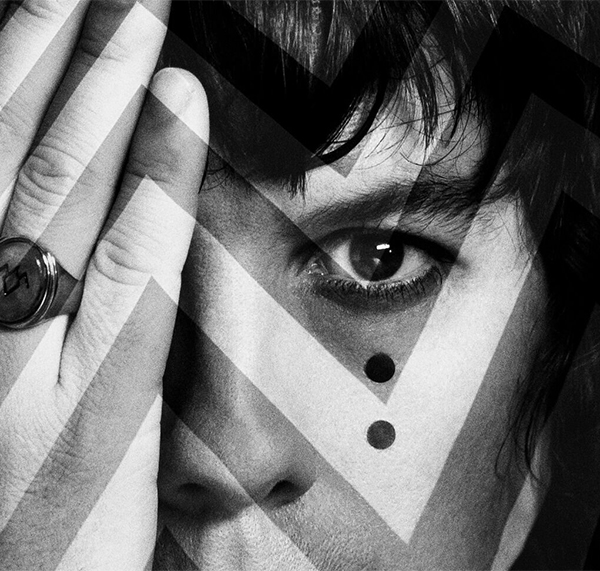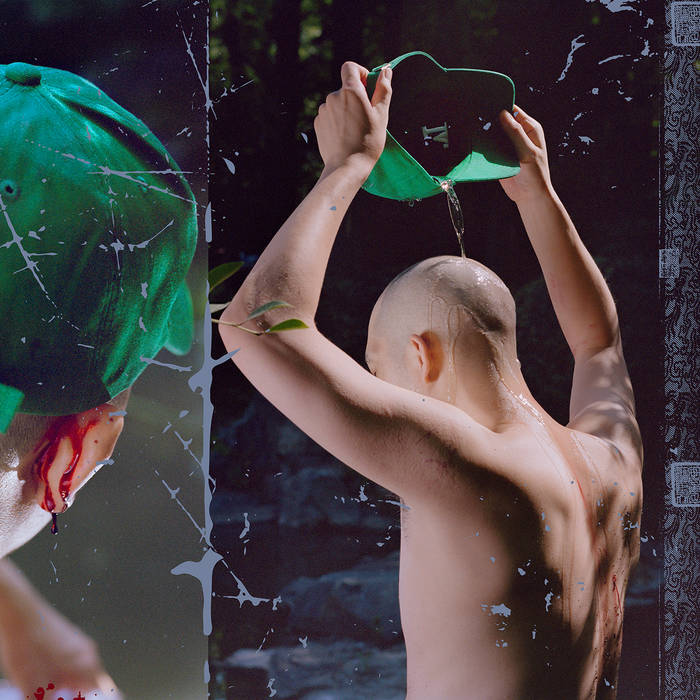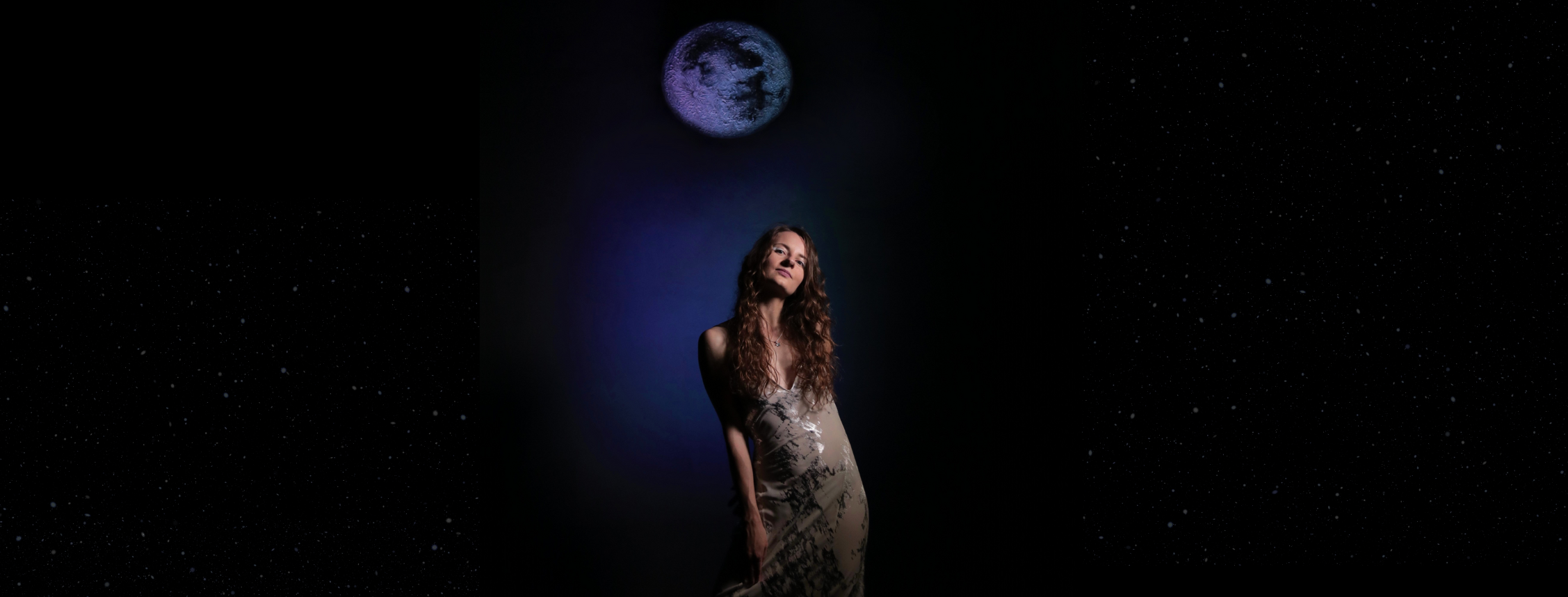Review: Johnny Jewel’s nightmarish catharsis of ‘Themes for Television’
Johnny Jewel | Themes for Television | Italians Do It Better
Release date: 21 May 2018
Review by Jenna Dreisenstock
“The project began as a sonic exploration of the sounds I was hearing in my nightmares. I wanted to find my way out of the maze by focusing on beauty over fear — like the way the fractured sunrise looks in a dream.” – Johnny Jewel
Born in loving agony, a raw tenderness glitters like tiny souls trapped within a nightmare-scape: an anxious beauty that sprouts, blooms in stunning hyperventilation, of intricate patterns in fractured bones and the blood-rose stinging beauty in each wound. When the two-part premiere of David Lynch and Mark Frosts’ ‘Twin Peaks: The Return‘ came to a close at the iconic Roadhouse, Portland-born electronic band Chromatics took the stage, performing the track “Shadow” in a hypnotic sphere of shimmer and kaleidoscopic auditory exploration; began a newfound traverse through auditory imagination – Chromatics member and American composer Johnny Jewel had only just touched on his role regarding the series. Working with lack of imagery and instead auditory world building, Jewel builds a rich narrative with blind eyes in Themes for Television, an homage and personal interpretation of Jewel’s imagining of what ‘The Return‘ could be – consisting of 21 tracks, the album had be specially cut, edited and arranged as Jewel, in an overwhelm of creativity and engulf of inspiration and energy initially produced over 6 hours of music based on the narrativebuilt within him. Themes for Television creeps beautifully into our tender bodies as we watch, within ourselves, a film in which the images are our own, yet the narrative built through Jewel’s hypnotic expression.
Shudder warmth in a dimly lit room; golden, velvet rays seeping through each woven lampshade – rich mahogany amongst an auditory noir, the melancholy of drinking alone. ‘Windswept‘ caresses the sweet companionship in ice-cube chimes and bitter liquor, slithering in a moody, comforting pain down the back of the throat. An ache of lovely burning. Introspective woodwind in tender agony calls aloof, the raw soul of poetic saxophone speaking in soliloquy. Delicate wounds of a protagonist in deep thought, woeful truth and hard-to-swallow pills; cries curious in the twilight saxophone and glimmer mahogany, velveteen curtains-drawn; drenched in in a scarlet glow.
The poised swell of theatric synths glow in the lunar orchestral; a harmony of greeting as ‘Red Curtains‘ stitches the dance of sad phantasms atop the stage – spectral immersion amongst those playing a part. Raw and vivid in heavy breathing; the adrenaline of stage fright even after the performers bow – disassociation in audience mesmer in Jewel’s climactic, moving and stomach-clutch of textural soundscape. The final scene as the director panned outward in post-performance blues, the loss of oneself in playing reality. The credits roll as the audience remains still.
Abrupt breakthroughs of layered film skins and membrane negatives, ‘Deja Vu‘ simmers in caution, the chill creak of thrill in experimental traverse; illumination in clinical torch-light, the shining sprinters of an abandoned house – the thought of a foreign alienation, yet unexplained nostalgia in curiosity. Sweet psychological distortion in a banshee’s tremolo guitar; the embrace of major-key synths a child’s comfort in the unknown: “Ive…been here before?” The spectres sing sweet in melodies of key driven melancholia, the sight of ghostly illumination; a dust soaked grand piano crying out in lament, the simultaneous comfort and chill in the atmosphere of the familiar and unfamiliar. Textural layering in sweetly woven spiderwebs, a hopeful and doe-eyed abandon in the delicately connected.
Insomniac, amnesiac limbo; sleep soaked, gravity glitter on the eyelids – a blurred open eye distortion in the wakefulness of the unreal. Devil in the details, melodrama dracula as ‘Nightmare‘ opens in gothic collage: a single note as a dying, speaking organ amongst the flitter of anxious silhouettes unable to sleep in the shadows. Ever present. A percussive kindness in the urge of tender thrill, a phantasm ambience in each waking thought; nervousness, a look in every direction in a I-Am-Trying-To-Calm-Myself-
A simmer ray of sunrise glimpses within, silken flutter of drawn curtains exposing the first thought which blooms morning: ‘Waking Up‘ opens in dilation of dew-drop, blue haze synths as a bird-chirping melancholia. Cloud-burst longing, filled to the brim in saccharine sadness; each drop in loving nostalgia – synths in stunning prayer to the sky as on onlooker at the worlds end, breaking apart before breakfast – or the very beginning, in which the light of many lives (both in joy and misery) dance in newborn eyes as they awaken, in angelic destruction and painful creation.
Pace in blood-pulse and deep breath in – 1…2…3…4 and, breathe out: the rise and fall of raw-bone ribcage, vines twisted with and breakout; scarlet-drip thorns in the hand-hold embrace of dreaming melodies and sweet-sorrow soundscape. ‘Breathless‘ opens in quiet reflection, sunrise and sunset synths swell with a rosebud bass, sprouts sifted in the lungs – the delicate twinkling of gems in a glock melody dot the soundscape in a shimmering constellation. A stargaze nostalgia in an air so cold it seeps to the bone, our breath materializing before us, stark frost as tiny ghost of ourselves; the shiver reminder of consciousness and the raw, glittering wound of being alive. Touched by the heavy fuzz of of futuristic distortion seamlessly countered with vintage effect drenched undertones. Theatric in a post-rock ambience, an orchestral rain sings in a chorus of dark angels.
Themes for Television exists as constellation chimera of itself. Written as a score to phantasm images, a non-existent film starring nothing or no-one: Johnny Jewel traverses a new approach to storytelling: development in blindness. World-building in dark hallways. Occupying space in empty rooms. Paths that lead to nowhere and forests that distort and die in anxious nightmares. Writing dialogue for a finished film with spoken word – shooting in black & white, adding the colour afterward. Writing the music for a film, before the film is conceptualised. Themes for Television almost scores itself as though the auditory is simultaneously visual – a score without accompanying imagery, that lack of visual information allows a subconscious traverse in filling in the gaps as we are guided through the narrative Jewel has created in an experimental, nightmarish and yet loving soundscape; blooming in black dahlias and nightshade, sipping sweetly on the poison nectar of an imaginary yet strikingly real world.

Order Themes for Television by Johnny Jewel
For more information follow Johnny Jewel on Facebook



